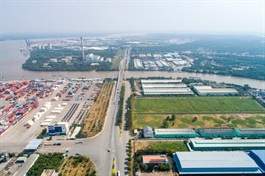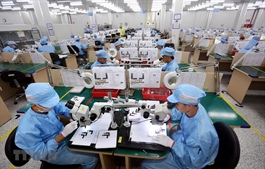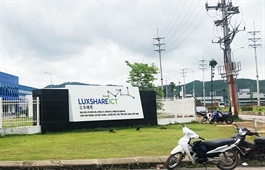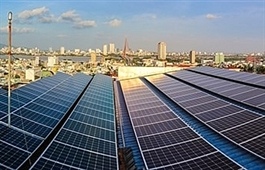Challenges in agricultural food supply to HCMC
Challenges in agricultural food supply to HCMC
The demand for agricultural produce in Ho Chi Minh City poses several challenges in the management of the complex agricultural food supply chain to the City.
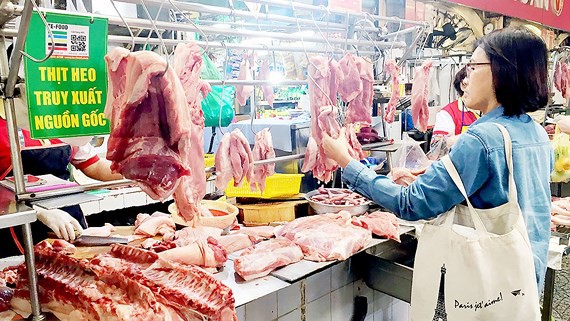 |
As the local production within the City can only meet with about 30% of the demand and needs of its ten million population, the City still has to import a major portion of its supply from neighboring provinces and cities, as well as find other supply sources.
Fervent efforts for quality
In 2017, Ho Chi Minh City worked fervently on mandatory pork tracking and traceability. The focused effort not only covered all available modern distribution channels but also the traditional markets in two focal locations of Binh Dien and Hoc Mon markets. In the early days of implementation, traders applied great pressure and resistance in the wholesale markets, but with the persistent efforts of the City authorities, pigs began to be sold in markets with tracking bracelet rings. Consumers also enthusiastically scanned the QR codes before buying a pig.
This effort did not last long and buyers very quickly lost interest and did not care to see where the pig actually came from. The problem was that the scanned information only showed from which farm the pork had been delivered, and the date and time of slaughter. What consumers really cared about is if the pig had been through a quality check and whether the stamp was genuine or not. Buyers quickly lost interest because of lack of essential information.
After this project of pig tracking, Ho Chi Minh City authorities implemented the same task of tracing the origins of fruits and vegetables, but so far, all wholesale markets still do not disclose origin of fruits or vegetables from localities outside of Ho Chi Minh City. In the modern distribution channels such as supermarkets, not many people pay attention to the origin of fruits and vegetables because they share the same concerns as they did with pork traceability, where the information was vague and incomplete. The products labeled under the Vietnamese Good Agricultural Practices (VietGAP) are bought by consumers because of the belief that the produce has been cultivated according to VietGAP standards. Now, only the growers know the truth of actual origin, and even the supermarkets and convenience stores have no knowledge about the origin.
The Food Safety Management Authority of Ho Chi Minh City also built safe food supply chains in Ho Chi Minh City and many other provinces that supply to the City retail outlets. Ho Chi Minh City has links with many provinces and cities for producing and distribution, which forms an essential supply chain that is constantly facing many challenges.
According to Asso. Prof. Dr. Tran Tien Khai at the University of Economics in Ho Chi Minh City, the committee to oversee a project to build a supply chain to bring quality agricultural produce to Ho Chi Minh City and key southern economic regions was very well executed by the City. However, Vietnamese Good Agricultural Practices (VietGAP) has pushed growers and breeders into a difficult position because of high produce prices.
The market is also being flooded with fake produce claimed as having been grown under VietGAP standards, which is discouraging to growers. Asso. Prof. Dr. Tran Tien Khai believes that one solution is to set mandatory standard barriers, for both market demand and supply, and also for production and distribution. This will ensure fairness for both sides of the supply chain, the grower as well as the seller.
Dual standards must not be accepted in production, processing and consumption of agricultural produce. In other words, the legal system of food safety must be made mandatory. Only goods that meet these standards must be allowed to be sold and distributed in the markets. In addition, all related units in the agricultural supply chain must be required to maintain safe standards.
For agricultural produce to enter various regions for consumption, some prescribed standards must be implemented and followed. Many people are concerned about the City importing almost 80% of agricultural produce from other provinces and cities. In 2018, Ho Chi Minh City had asked wholesale markets not to import unprocessed foods to reduce the amount of waste. The producing households and businesses wanting to bring their produce to the City were made to strictly comply with the regulations before distribution within Ho Chi Minh City.







